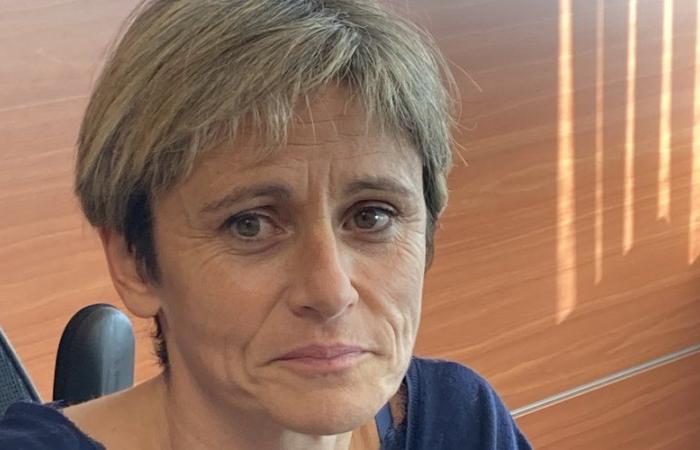
The 2025 social security financing bill (PLFSS) will be one of the first acts of the Barnier government. On September 8, in Les Echos, the general director of the national health insurance fund (CNAM), Thomas Fatôme, announced a “higher” than expected 2024 deficit. And pointed to the increase in expenses linked to work stoppages, announcing the need for a “new compensation system” and upcoming meetings with “7,000 general practitioners to discuss their prescriptions”. A position which has the gift of irritating the profession: Dr Audrey Borras, general practitioner from Narbonne and president of the MG France Occitanie union reacts to the comments.
How do you react to the comments of the DG of Social Security who, while ensuring that he does not “anathematize doctors, policyholders, or companies”, mentions the objective of “reducing by 2% per year the volume of work stoppage”, and cites an “unjustified work stoppage” in 30% of the cases of 270,000 insured people on leave summoned in 2023?
This simply means that we are going to be checked again, and we knew it. Except that in 2023, Social Security had already initiated control operations (after the announcement of a plan against social fraud by the government, in May 2023, Editor’s note): the national health insurance fund (CNAM) has figures for each doctor, with the number of days of sick leave prescribed. Scatter plots appear to locate doctors on a graph, and if they are above the national median, they are likely to be targeted: three general practitioners from Aude, two based on the coast, and one from Carcassonnais, had were thus convened by the local joint committee. They had to defend all the work stoppages prescribed over the last three or even six months. It was then up to the director of the CPAM de l’Aude to decide whether there was a need to continue the procedure, with financial penalties incurred. He showed common sense, and did not report these cases to the CNAM.
Also read:
“A work stoppage is an employee who needs care and a company who has a problem doing the job”: the battle for prevention in occupational medicine in Narbonne
How were these summons perceived by the doctors concerned, and how do you, as a union leader, read this approach?
These summons were very poorly received, firstly because the basis of analysis of the CNAM is not medical. These three doctors had different profiles, different patient populations, and relatively large ages, over 50 for two, over 60 for the third. No doctor has a uniform patient base, and inevitably a young person who is setting up will have a smaller patient base, with fewer chronic illnesses which require more downtime. It’s stupidly mathematical: the more we increase the number of patients, the more we increase the number of potential stops. I come back to the general practitioner aged over 60: he had taken over the patients of colleagues who had retired. He has an increased workload, he continues to save the population, and we are going to summon him, almost like before a court: if I had suffered that, I would unscrew my plate.
It’s ugly what they did, and I had the feeling that the representatives of the social section of the CPAM were a little ashamed to be there. I also point out that judgments of convenience no longer exist: given the medical demographics, we no longer have time for that. If we sign a suspension, it is because the patient is not ready to resume, it’s quite simple: without forgetting the shortcomings of the health system which delay the possibility of restarts, with additional examinations which require extending the time limit. In Aude, we do not have enough specialists, not enough access to MRIs: this is a reflection of the entire health system.
How can we explain the reality of expenses linked to daily allowances which are increasing?
The director of the CNAM clearly saw last year that beating general practitioners in the face is useless, since expenses have increased by another 8% in the first half of 2024. This financial and moral repression does not work not. We also wrote to the CNAM last year to say that we refused the setting under objective (MSO): if we do not carry it out, we risk penalties. In the end, with this system, the one who will pay is the patient. I think that’s not why we go into medicine, and the attractiveness of this profession will still be impacted. Mr. Fatôme talks about contacting “all policyholders who have been on leave for more than 18 months to see if their stoppage is justified”: but everyone is checked, and not after 18 months. The Social Security medical advisors work hard, even if there are not many of them. The goal, in the end, for the CNAM, is to release people on leave to another fund (an incapacity, declared by the occupational doctor, can lead to dismissal, followed by registration with France Travail, Editor’s note ).
Does a solution really exist to reduce stoppages, when an increase in long-term leave is observed and the problem of mental health is increasing?
Doctors, any more than patients in long-term illness, are not responsible for the increase in sick leave which, as the director of the fund says, is “multi-factorial”. We should rethink the evolution of workstations in a company as the ages of the employees progress. employees and their health conditions. It’s not just a medical matter, it’s a societal one. On the issue of mental health, for the good of everyone, certain people must not repeat: the patient will screw up or he will hurt someone. If an employee is on leave, it is because his state of health does not allow him to carry out his task or it is because the position is not, or no longer suitable. And if the position is not adaptable, resumption is not possible: but here, we are no longer in the medical field. The director of Social Security could have taken the question the other way around, and wondered if ultimately the population is simply not receiving worse care over the years. And we must not forget the question of waiting days, and those which, at the end of the month, the three days not covered will sting: it is a thorny subject, which means that the most modest employees are more impacted than the richest employees. Finally, there is what no one talks about anymore: the hard-working sick people who don’t ask for time off and go to work “sick”. These people who go there and to whom I tell that they should stop but who don’t, I can no longer count them…





